#黒猫好き
Explore tagged Tumblr posts
Text

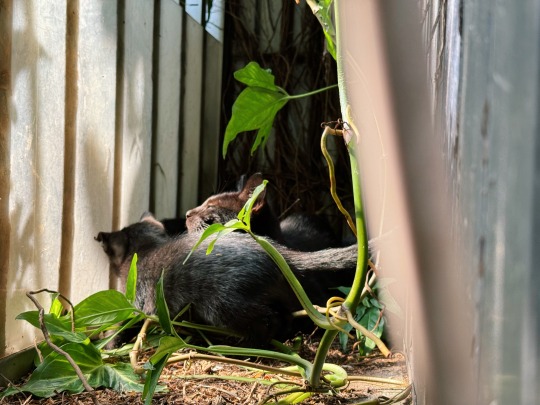
#🐈⬛#黒猫#黒猫同盟#黒猫好き#blackcat#cat#instacat#猫#猫部#ねこ#ねこ好き#pei3andherlittlefriends#streetsnap#streetphotography#catoftheday
7 notes
·
View notes
Text

8K notes
·
View notes
Text

Berrien from "The Demon Butler and the Black Cat"
『悪魔執事と黒い猫』のベリアンさん
#illustration#japan#drawing#illustrator#illust#degitaldrawing#degitalart#degitalillustration#fanart#derivative work#akumashitsuji to kuroineko#devil butler and black cat#akuneko#chibi character#deformed touch#deformed character#degital#イラスト好きな人と繋がりたい#イラストレーター#イラストレーション#イラスト#illustrators on tumblr#インスタグラム#ディフォルメタッチ#ディフォルメキャラ#ちびキャラ#悪魔執事と黒い猫#あくねこ#ベリアン#ベリアンクライアン
27 notes
·
View notes
Text
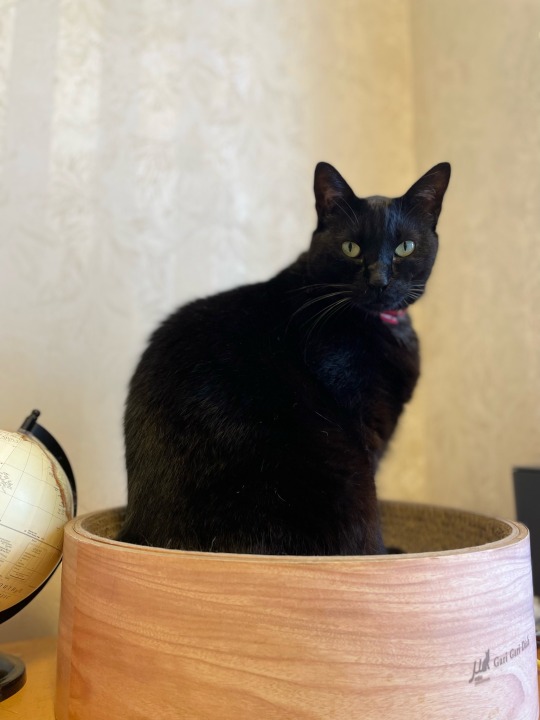
41 notes
·
View notes
Text



Happy Birthday Riku!!!💚🐿️💚
リクちゃんお誕生日おめでとう︎‼︎🐈⬛
#riku#nct wish#maeda riku#the cutest prettiest boy ever#黒猫リクちゃん大好きだよ🫶#he deserves all the love#much love#HappyRikuDay#リクに恋した6月28日#062825
2 notes
·
View notes
Text
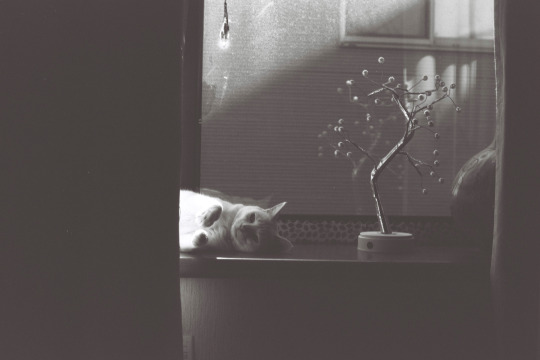
うらめしスズ
10 notes
·
View notes
Text
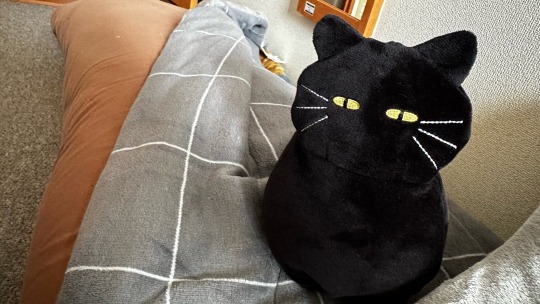
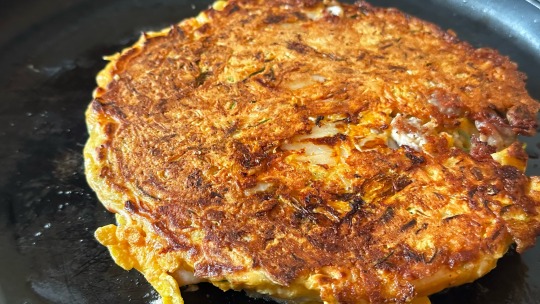
最近、休日はお好み焼きを焼いてばかりいる気がする
広島でお好み焼き食べてから、やっぱり自分で作る関西風お好み焼きが一番好きなようである
@自宅(ギュスターヴとともに🐈⬛)
17 notes
·
View notes
Text
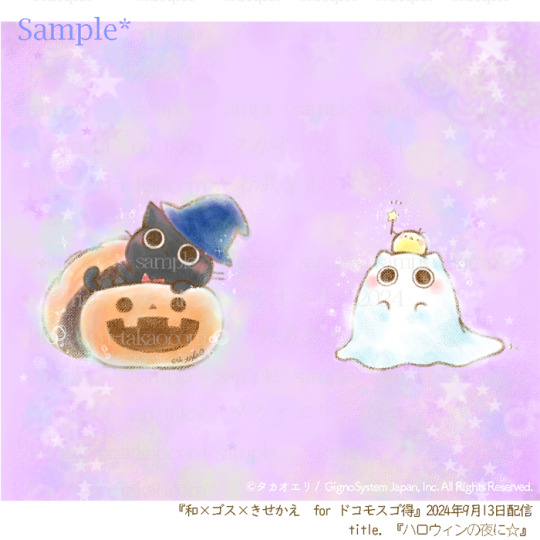

【お仕事】 2024年9月13日配信 きせかえ 『ハロウィンの夜に☆』
今回も配信初週ランキング1位✨ いつもDLしてくださってる皆様ありがとうございます☺️
配信:ジグノシステムジャパン株式会社 『和×ゴス×きせかえ forスゴ得/docomo』 https://sugotoku.docomo.ne.jp/cs/cpsite.html?id=01cpn053001
#ハロウィン#Halloween#秋#壁紙 #黒猫##おばにゃん#きせかえ#summer#docomoスゴ得#猫#にゃんこ#イラスト#桜#illustrationartists#illustration#artwork#cat#イラスト好きな人と繋がりたい#イラストレーター#タカオエリ#三毛猫
0 notes
Text
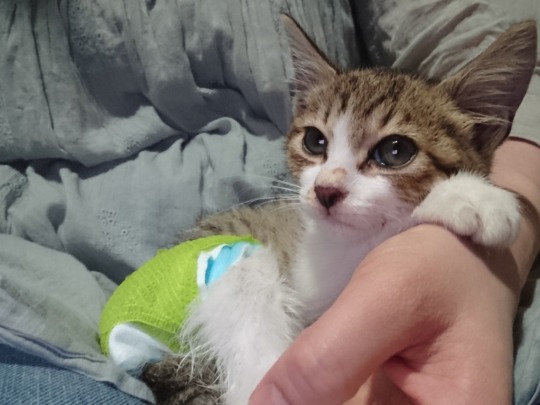
びーた、彼のママにはびーちゃんと呼ばれている
2019年7月、当時家主が働いていた某病院に「駐車場で猫の鳴き声がする」という報告があり、カラスから逃げ回っていたところを家主と管理スタッフに保護された子猫。下肢に化膿した傷があったが、毎日の通院で無事に育つ。精一杯助けを求め、ケガをしてなお生きようとする力強さから、家主がVitaと名付けた。
状態が落ち着いてから別の病院スタッフに引き取られた。当時は目が大きく病院でもノル混じりでは、という噂があったが、Jさんより大顔の立派な白キジに育っている。
なおとある黒毛玉とは異なり、滞在中Jさんとは良好な関係で過ごした。
Vita, his mom call him Vi-chan
The adopted injured little kitten found by landlady and facility managers who heard some announcements that kitty was meowing around the parking of the hospital where she worked July 2019, while he run away and hid from crows. He had a heavy suppurating wound, but he had been getting well by vets' care of every day. His name Vita named by landlady is from his vitality to meow as loud as possible to ask help and live against heavy wound.
He moved to another staff's house after getting well. Although many people who met him at the vet said he was a mixed Norwegian because of his big eyes, he now has a greater face than Mr J and has gotten a mature Japanese brown tabby.
And, unlike a certain black furball, He could get well with Mr.J white his staying.
2K notes
·
View notes
Text




素晴らしい&かわいい黒猫
優しく可愛くて愛らしい黒猫。彼はあなたと一緒にいることを一番好きです。
55 notes
·
View notes
Note
Hey kind of a silly question, but what are the strawhats epithets in japanese? I was especially curious about usopp' GOD title, since it was spelled differently for ener and gan ford in skypeia.
of course! i’ll just do the primary ones here since a few strawhats have had more than one
luffy: 麦わらのルフィ/mugiwara no rufi: mugiwara technically just means ‘straw’, but is understood in-universe universally to be shorthand for ‘straw hat’ (麦わら帽子/mugiwara boushi)
zoro: 海賊狩り/kaizoku-gari: ‘pirate hunter’
nami: 泥棒猫/dorobou-neko: literally ‘thieving cat’
usopp: ゴッド/goddo: ‘god’ transliterated
sanji: 黒足/kuroashi: ‘black leg’ or ‘black foot’ (ashi can mean either ‘leg’ or ‘foot’)
chopper: わたあめ大好き/wataame daisuki: ‘cotton candy/candy floss lover/loving’
robin: 悪魔の子/akuma no ko: ‘demon/devil child’
franky: 鉄人/tetsujin: ‘iron man.’ the pronunciation for this one has also been given as サイボーグ/saibōgu (‘cyborg’), but with the same kanji- i believe it shifted to tetsujin after dressrosa.
brook: ソウルキング/souru kingu: ‘soul king’ transliterated
jinbe: 海侠/kaikyou: this is the one that’s famously difficult to translate. kaikyou (海峡) ordinarily means ‘channel/strait’ like the seafaring term, but in jinbe’s epithet the second kanji has been replaced with 侠, which means ‘chivalrous’ and is used in an honorific/euphemistic way to describe a yakuza member (with the word 任侠/ninkyou).
280 notes
·
View notes
Text
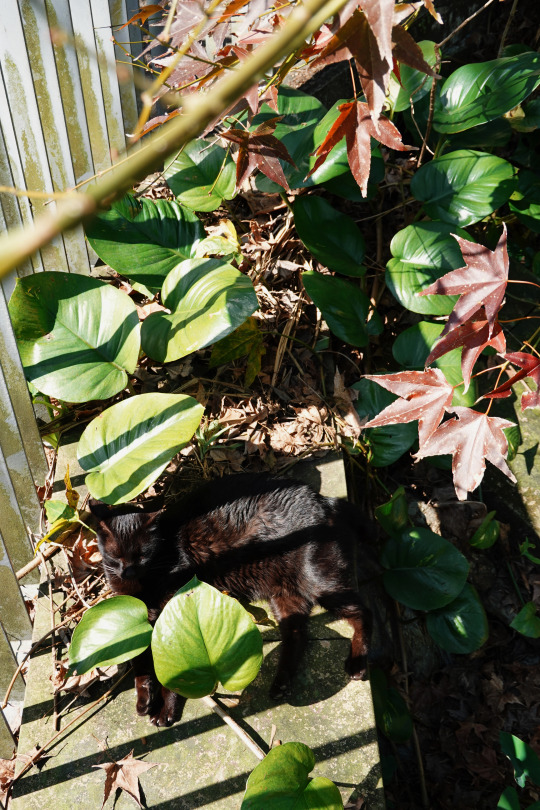
#黒猫#黒猫部#ねこ#ねこ部#pei3andherlittlefriends#cat#猫#ねこ好き#catoftheday#black cat#blackcat#🐈⬛#黒猫好き#sony rx100vii#sonyrx100m7#sony#rx100m7
4 notes
·
View notes
Text

570 notes
·
View notes
Text

【制作実績】『悪魔執事と黒い猫』テディブラウン
#art#illustration#japan#drawing#illustrators on tumblr#illust#illustrator#icons#degital#degitalillustration#degitaldrawing#degitalart#design#derivative work#fanart#devil butler and black cat#akumashitsuji to kuroineko#teddy brown#イラスト好きな人と繋がりたい#イラストレーター#イラストレーション#イラスト#二次創作#二次創作イラスト#ファンアート#アイコン#アイコンイラスト#悪魔執事と黒い猫#あくねこ#akuneko
26 notes
·
View notes
Text

友だちいないので、ひとり遊びの日々
いろいろ遊ぶけど、
名前(名称、名詞とか)というものに興味があるので、それを頭のなかで転がしていたり。
人の名前を見聞きしたとき
素敵だなあとか、ユニークだなあとか、つけた人の感性とか思いを感じてほんわかしたり、納得したり、えっ!と驚いたり。
耳に心地よい名前があるし
文字で楽しませてくれる名前もあり。
この間、少し面白かったのは
くろ◯ゆきこさんという名前を知ったとき。
耳にしたときは、賢そうで美人っぽい名前と思った
文字で黒◯雪子、と見ると
黒と雪(白)が並んでいる感じにアレ?となった。アクセント強め〜
私の好きな0655(ゼロロクゴーゴー)という番組は
名前を紹介、その後猫さん犬さんが写真で登場
名前をきいた瞬間に、どんな猫(犬)なんだと想像する
きなこ?
明るい茶色の柴犬かな?
当たったときは、ドヤ。
そういえば、だいぶ前、通りすがりの散歩中のわんこさんに会ったとき
チェリーっぽいなあ、と思っていたら、飼い主さんにシェリー(ほとんど当たり!でしょ?)だと教えてもらったときのドヤ。
また、ふわっとした存在(物事や気持ちとか)のものの名前を知ったときや、名前をつけられた瞬間、そのものにくっきりと、輪郭がつくように感じるのも興味深い…
だけど、時にはそんな輪郭つけたくないなあ
と思うこともあり…
誰かさんへの評価とかもそう
誰かのことを簡単に、真面目だとか優しいとか、キツいとか、
キャラクターを固定したくないなあ
そんな風に言ってしまった時からそんな風にしか見えなくなっちゃうように思うので
その人の内側はそう簡単にわからないはず
そういえば、コールセンターのバイトをしていたときは
電話の相手に名乗った瞬間、鎧を着るような感じがしたもんさ
相手にとって、コールセンターの数いるオペレーターでなく、私という存在になるってこと
誰かさんにかけられた言葉が1日の終わりになぜか思いだされて
あれって冗談?もしかしてイジワル?
いや、いたわりか?
どうジャンル分けするかで、明日が少し変わるかも。
ねえ、
ワタシたち、最近ずっと一緒にいるけど
あなたはワタシをどう思ってるの
友だち?彼女?
白黒はっきりつけてよ
ひとり遊びは結局妄想で終わる
27 notes
·
View notes
Text
Memo for Episode 20 (Ep.44) “Stronghold”
It contains major spoilers, so if you haven't seen the anime yet, don't read on.
猫猫(子翠(シスイ)の正体(しょうたい)は、楼蘭妃(ロウランひ)だった。とんだ役者(やくしゃ)…いや、まるで狸(たぬき)のようだ。四夫人(よんふじん)に特別(とくべつ)授業(じゅぎょう)をした時(とき)、派手(はで)な装(よそお)いで、無表情(むひょうじょう)なまま授業(じゅぎょう)を聞(き)いていた。皇太后様(こうたいごうさま)から隠(かく)れたり、大浴場(だいよくじょう)で里樹妃(リーシュひ)に近(ちか)づかなかったのも、自分(じぶん)が楼蘭妃(ロウランひ)だとバレないようにするためだろう。私(わたし)から隠(かく)れなかったのは、毛毛(マオマオ)を捕(つか)まえた時(とき)に楼蘭妃と気付(きづ)かなかったから…。うすうす感(かん)じてはいたが…。虫好(むしず)きで、ちょっと変(か)わっていて、噂話(うわさ��なし)に花(はな)を咲(さ)かせる普通(ふつう)の子(こ)。見事(みごと)、子翠(シスイ)に化(ば)かされていたというわけか…)
Maomao (Shisui’no shotai’wa, Roran-hi datta. Tonda yakusha… iya, marude tanuki’no-yoda. Yon-fujin’ni Tokubetsu-jugyo’o shita-toki, hade-na yoso’oi’de, mu-hyojo-na-mama jugyo’o kiite-ita. Kotaigo-sama’kara kakure-tari, dai-yokujo’de Rīshu-hi’ni chikazuka-nakatta-no’mo, jibun’ga Roran-hi-dato bare-nai-yoni suru-tame-daro. Watashi’kara kakure-nakatta-nowa, Maomao’o tsukamaeta-toki’ni Roran-hi-to kizuka-nakatta-kara… Usu-usu kanjite’wa ita-ga… Mushi-zuki’de, chotto kawatte-ite, uwasa-banashi’ni hana’o sakaseru futsu’no ko. Migoto, Shisui’ni baka-sareate-ita-to-iu wake-ka…)
Maomao (Shisui’s true identity was Concubine Loulan. What an actress. Or maybe she’s more like a tanuki. When I gave that lecture to the four concubines, she had that flashy outfit and listened expressionlessly. She hid from the empress dowager and avoided Concubine Lishu at the baths so that she wouldn’t be recognized as Concubine Loulan. She didn’t hide from me, since I didn’t recognize her as Concubine Loulan when we caught Maomao the cat. I was starting to get the hint, but… An insect-loving, quirky, gossipy, but ordinary girl. Shisui played us all.)
とんだ(Tonda): unexpected, what a 〇〇!
とんでもない(Ton-demo-nai): unbelievable, outrageous
とんだ and とんでもない are similar but とんでもない contains a condemnation of something bad when you use it about others. (When you use とんでもない about yourself, it means humility. For example, someone say “You’re so beautiful!” and you answer “とんでもないです” that means “Not at all!”)
役者(やくしゃ/Yaku-sha): actor = 俳優(はいゆう/Haiyu) 役者 and 俳優 can be used regardless of gender.
女優(じょゆう/Joyu): actress (used for women only)
化かされる(ばかされる/Baka-sareru): be bewitched by, be tricked by
化かす(ばかす/Bakasu): bewitch, trick
化ける(ばける/Bakeru): appear in disguise, transform
In Japanese folk tales, raccoon dogs(tanuki) and foxes often trick humans by transforming into beautiful women or someone who looks like a real human. In KNH Lakan and Lahan are often described as foxes and Shishou as a tanuki because of their appearances and cunningness. In Japan, when describing people as animals, a cunning-looking person is compared to a fox, and a seemingly good person who deceives others is compared to a tanuki.
Finally, the true identity of Shisui was revealed to be Concubine Loulan. When I first read the original novel, I didn’t expect that at all and I was so surprised! Even knowing that, I was surprised that Loulan’s voice and the way she spoke sounded completely different from Shisui’s.
――――――――――――――――――――――――――――――
猫猫「楼蘭(ロウラン)は、その名前(なまえ)を気(き)に入(い)っているようですね。下女(げじょ)として偽名(ぎめい)を使(つか)うなら、もっと違(ちが)う名(な)を選(えら)べば良(よ)かったのに」
Maomao “Roran’wa, sono namae’o ki’ni-itte-iru-yo-desu-ne. Gejo-to-shite gimei’o tsukau-nara, motto chigau na’o erabeba yokatta-noni.”
Maomao “Loulan seems to like that name. She could have chosen any other name as her servant pseudonym.”
偽名(ぎめい/Gimei): pseudonym
翠苓「そういう子(こ)なんだ」
Suirei “So-iu ko nan-da.”
Suirei “It’s just how she is.”
The translation is perfect. I think this is an example of the translation that cannot be made by simply substituting words.
猫猫(同(おな)じ男(おとこ)の娘(むすめ)として生(う)まれたのに、母(はは)が違(ちが)うだけで、一方(いっぽう)は蝶(ちょう)よ花(はな)よと育(そだ)てられ、帝(みかど)の花(はな)として献上(けんじょう)される。そしてもう一方(いっぽう)は、官女(かんじょ)として後宮(こうきゅう)に送(おく)り込(こ)まれ、暗躍(あんやく)する。中祀(ちゅうし)での壬氏様(ジンシさま)暗殺未遂(あんさつみすい)事件(じけん)に、翠苓(スイレイ)は関(かか)わっていた。倉庫(そうこ)の爆発(ばくはつ)の混乱(こんらん)に乗(じょう)じて祭具(さいぐ)を盗(ぬす)み、発覚(はっかく)したら死人(しにん)を装(よそお)って逃走(とうそう)した。そして、先日(せんじつ)の飛発(フェイファ)を使(つか)った襲撃事件(しゅうげきじけん)も、子昌(シショウ)が黒幕(くろまく)だったのだろう。後宮管理者(こうきゅうかんりしゃ)の壬氏様(ジンシさま)は、後宮(こうきゅう)の有(あ)り方(かた)を変(か)えようとしていた。子昌(シショウ)のやり方(かた)に反(はん)するように。…しかし、それだけか?子翠(シスイ)…いや、楼蘭(ロウラン)が価値(かち)があると言(い)ったかんざし。ただの官(かん)ではない。いや、宦官(かんがん)ですらなかった)
Maomao (Onaji otoko’no musume-to-shite umareta-noni, haha’ga chigau-dakede, ippo’wa choyo-hanayo-to sodate-rare, mikado’no hana-to-shite kenjo-sareru. Soshite mo-ippo’wa, kanjo-to-shite kokyu’ni okuri-komare, an’yaku-suru. Chu-shi’deno Jinshi-sama ansatsu-misui-jiken’ni, Suirei’wa kakawatte-ita. Soko’no baku-hatsu’no konran’ni jojite saigu’o nusumi, hakkaku-shitara shi-nin’o yoso’otte toso-shita. Soshite, sen-jitsu’no feifa’o tsukatta shugeki-jiken’mo, Shisho’ga kuro-maku datta-no-daro. Kokyu-kanri-sha’no Jinshi-sama’wa, kokyu’no arikata’o kae-yoto-shite-ita. Shisho’no yari-kata’ni han-suru-yoni. …Shikashi, sore-dake-ka? Shisui… iya, Roran’ga kachi’ga aru-to itta kanzashi. Tada’no kan’dewa nai. Iya, kangan-de-sura nakatta.)
Maomao (Even though they were born from the same father, just because their mothers were different, one gets treated as a treasured princess to be given to the emperor. The other is sent in as a court lady to scheme in the shadows of the rear palace. Suirei was part of the attempt to assassinate Master Jinshi at that ceremony. She used the explosion at the warehouse as cover to steal some ceremonial tools, and when she was caught, she escaped, feigning death. And Shishou must have been the mastermind behind the feifa attack the other day. Master Jinshi, the manager of the rear palace, was trying to make changes. It wasn’t in line with what Shishou was doing. Is that all, though? Shisui… I mean, Loulan said this hair stick was valuable. He isn’t just some official. Rather, he wasn’t even a eunuch.)
蝶よ花よと育てられる(ちょうよはなよとそだてられる/Cho-yo hana-yo-to sodate-rareru): be brought up like a princess
献上する(けんじょうする/Kenjo-suru): to present something to someone noble/of the upper classes
暗殺未遂(あんさつみすい/Ansatsu-misui): assassination attempt = 暗殺(あんさつ/Ansatsu): assassination + 未遂(みすい/Misui): attempted
黒幕(くろまく/Kuro-maku): mastermind
――――――――――――――――――――――――――――――
翠苓「食事(しょくじ)は持(も)って来(く)る。くれぐれも、神美様(シェンメイさま)のご機嫌(きげん)を損(そこ)ねないように」
Suirei “Shokuji’wa motte-kuru. Kure-gure-mo, Shenmei-sama’no gokigen’o sokone-nai-yoni.”
Suirei “Food will be brought to you. Just make sure you don’t anger Lady Shenmei.”
くれぐれも(Kure-gure-mo): (When asking someone to do something important, to call someone’s attention) Make sure to~, Be careful to~, I repeatedly ask you to~
――――――――――――――――――――――――――――――
猫猫(里(さと)からここに連(つ)れて来(こ)られる時(とき)、一緒(いっしょ)に行(い)くと言(い)った響迂(キョウウ)に、翠苓(スイレイ)は渋(しぶ)い顔(かお)をした。本当(ほんとう)は里(さと)にとどめておきたかったのかもしれない。もし、子(し)の一族(いちぞく)が謀反(むほん)を起(お)こしたとなれば、一族郎党(いちぞくろうとう)、その罪(つみ)を負(お)わされるだろう。それは、女(おんな)、子供(こども)でも、赤子(あかご)でも。子供(こども)たちは知(し)っているのだろうか。大人(おとな)たちは、教(おし)えたのだろうか)
Maomao (Sato’kara koko’ni tsurete-korareru-toki, issho-ni iku-to itta Kyo-u’ni, Suirei’wa shibui kao’o shita.
Honto’wa sato’ni todomete-oki-takatta-no-kamo shire-nai. Moshi, Shi’no ichi-zoku’ga muhon’o okoshita-to-nareba, ichi-zoku-roto, sono tsumi’o owa-sareru-daro. Sore’wa, onna, kodomo-demo, akago-demo. Kodomo-tachi’wa shitte-iru-no-daro-ka. Otona-tachi’wa, oshieta-no-daro-ka.)
Maomao (When I was brought here from the village, Kyou-u insisted he’d come too, but Suirei seemed reluctant. Perhaps she wanted to keep him at the village. If the Shi clan rebels, the punishment will extend to the entire clan. No one will be spared. Not even women, children, or babies. Do the children know? Did the adults tell them?)
一族郎党(いちぞくろうとう/Ichi-zoku-roto): one’s whole clan, one’s family and followers
Generally speaking, when the word “一族郎党” is used, it is often followed by ominous words like “皆殺し(みなごろし/Mina-goroshi): kill them all” or “根絶やし(ねだやし/Ne-dayashi): exterminate them.”
猫猫「他人事(ひとごと)だと割(わ)り切(き)ってしまえばいいのに…」
Maomao “Hito-goto-dato wari-kitte-shimaeba ii-noni…”
Maomao “I should just write this off as someone else’s problem….”
他人事(ひとごと/Hito-goto): somebody else’s business/problem, another person’s affairs
割り切る(わりきる/Wari-kiru): divide, separate – In this line, like “If only I could think of this as someone else’s problem and I could separate it from myself…” = It’s so painful for me that I can’t just accept it as something that doesn’t concern me.
――――――――――――――――――――――――――――――
楼蘭(母(はは)が父(ちち)に憤(いきどお)っている。ここは一緒(いっしょ)に怒(おこ)るところ)
Roran (Haha’ga chichi’ni ikido’otte-iru. Koko’wa issho-ni okoru-tokoro.)
Loulan (Mother is angry at father. This is where I get angry with her.)
I think this translation should have been “Mother is angry at father. This is where I get angry with him/father, together/along with her/mother. I guess they translated “一緒に(いっしょに/Issho-ni)” into “with her”, which could cause the viewers’ misunderstanding for “angry with/at her.”
――――――――――――――――――――――――――――――
壬氏「軍師殿(ぐんしどの)の言(い)いたいことは分(わ)かります。私(わたし)の不甲斐(ふがい)なさが問題(もんだい)なのでしょう」
Jinshi “Gunshi-dono’no iitai-koto’wa wakari-masu. Watashi’no fugai-nasa’ga mondai-nano-desho.”
Jinshi “Master Strategist, I know what you’re trying to say. You’re dissatisfied with my shiftless cowardice.”
不甲斐なさ(ふがいなさ/Fugai-nasa): being pathetic/inefficient/useless (noun)
不甲斐ない(ふがいない/Fugai-nai): pathetic, inefficient, useless (adjective)
――――――――――――――――――――――――――――――
壬氏(軍師殿(ぐんしどの)の、娘可愛(むすめかわい)さを思(おも)えば、来(く)るのが遅(おそ)かったくらいだ。抜(ぬ)け穴(あな)のこと。消(き)えた宦官(かんがん)のこと。子翠(シスイ)という存在(そんざい)しない下女(げじょ)のこと。全(すべ)て後手(ごて)に回(まわ)り、結果的(けっかてき)に猫猫(マオマオ)がさらわれた。俺(おれ)の責任(せきにん)だ)
Jinshi (Gunshi-dono’no, musume-kawaisa’o omoeba, kuru-noga oso-katta-kurai-da. Nuke-ana’no koto. Kieta kangan’no koto. Shisui-to-iu sonzai-shinai gejo’no koto. Subete gote’ni mawari, kekka-teki’ni Maomao’ga sarawareta. Ore’no sekinin-da.)
Jinshi (Given how much he dotes on his daughter, it’s actually surprising he took so long to show up. The secret escape route, the missing eunuch, the non-existent servant girl named Shisui… We were one step behind in every instance, resulting the kidnapping of Maomao. I’m responsible for this.)
後手に回る(ごてにまわる/Gote’ni mawaru): fall behind, be one step behind = 後手後手になる(ごてごてになる/Gote-gote-ni naru)
⇔ 先手を打つ(せんてをうつ/Sen-te’o utsu): take the initiative in, make a pre-emptive moves to
――――――――――――――――――――――――――――――
壬氏(軍師殿(ぐんしどの)はお見通(みとお)しなのだ。本来(ほんらい)の自分(じぶん)の立場(たちば)に自信(じしん)を持(も)つことができず、そこから逃(に)げ出(だ)して、この地位(ちい)にあぐらをかいていると)
Jinshi (Gunshi-dono’wa omitooshi-nanoda. Honrai’no jibun’no tachiba’ni jishin’o motsu-koto’ga deki-zu, soko-kara nige-dashite, kono chii’ni agura’o kaite-iru-to.)
Jinshi (He knows everything. He knows I lack the confidence to assume my rightful position. He knows how I ran away from it to spend my time here instead.)
お見通し(おみとおし/Omitooshi): see through, already know, know everything
あぐらをかいている(Agura’o kaite-iru): It originally means “sitting cross-legged,” but here, it means “relaxing without making any effort, satisfied with my current position.”
羅漢「半端(はんぱ)な姿(すがた)で、半端(はんぱ)な仕事(しごと)をして、それで何事(なにごと)もうまくいくとでも?…半端(はんぱ)な、宦官野郎(かんがんやろう)のままで…何(なに)ができると言うんです!!」
Rakan “Hanpa-na sugata’de, hanpa-na shigoto’o shite, sorede nani-goto’mo umaku-iku-to-demo? …Hanpa-na, kangan-yaro’no mama’de… nani’ga dekiru-to iun-desu!!”
Lakan “Your appearance, your work… all half-measures. And you think everything will just all work out somehow? What can you ever hope to achieve acting as a sorry eunuch?!”
半端な(はんぱな/Hanpa-na): halfway, incomplete, cagmag
〇〇野郎(〇〇やろう/〇〇yaro): insulting word for men -野郎(やろう/yaro): rougher word than “man/guy”
――――――――――――――――――――――――――――――
羅漢「お…お…叔父貴(おじき)!?あ…ん…」
Rakan “O…O…Oji-ki!? A… N…”
Lakan “U-Uncle?!”
叔父貴(おじき/Oji-ki): Uncle (When men call their uncles) = 叔父さん(おじさん/Oji-san)
Generally speaking, regardless of gender, we call our uncles “おじさん”, but it sounds a bit polite, so some guys use a rougher word, 〇〇貴(〇〇き/〇〇ki). But I��ve never heard of anyone actually using it around me… It’s common in anime, TV dramas, and movies. Maybe you’ve heard of “兄貴(あにき/Aniki): Big Bro” or “姉貴(あねき/Aneki): Big Sis” in another anime or something.
――――――――――――――――――――――――――――――
羅漢「分(わ)かってるよ、叔父貴(おじき)。さっきのは、売(う)り言葉(ことば)に買(か)い言葉(ことば)で…あんなこと言(iい)うつもりは、これっぽっちもなかったんだ」
Rakan “Wakatteru-yo, Oji-ki. Sakki-nowa, uri-kotoba’ni kai-kotoba’de… anna-koto iu-tsumori’wa, koreppocchi’mo nakattan-da.”
Lakan “I know, Uncle. That was just, you know, an exchange that took an unexpected turn. I didn’t mean to say those things, not one bit!”
売り言葉に買い言葉(うりことばにかいことば/Uri-kotoba’ni kai-kotoba): tit for tat, the exchange of harsh words
In Japanese, we use the word “売る(うる/Uru): sell” to mean to “start/pick” a fight, and “買う(かう/Kau): buy” to take up the fight. Of course, there is no money exchange in it, though.
壬氏(いや…何(なん)の言葉(ことば)も売(う)っていないが…)
Jinshi (Iya… Nan’no kotoba’mo utte-inai-ga…)
Jinshi (An ‘exchange’? I didn’t say anything…)
“No, I didn’t sell any word…”(direct translation)
I like this line very much. How calm and patient Jinshi is…
――――――――――――――――――――――――――――――
羅漢「お願(ねが)いに参(まい)りました。逆賊(ぎゃくぞく)・子昌(シショウ)を討(う)つべく、軍(ぐん)を動(うご)かしていただきたいと!」
Rakan “Onegai’ni mairi-mashita. Gyaku-zoku, Shisho’o utsu-beku, gun’o ugokashite-itadaki-tai-to!”
Lakan “I come to you with a plea. I humbly request that you rally the army to defeat Shishou, the traitor!”
逆賊(ぎゃくぞく/Gyaku-zoku): rebel, traitor
I wonder why they translated it into “traitor,” not into “rebel.” 逆賊 is a very strong word which means a villain who rebels against his master or the leader of his country and who must be caught and executed. For me, the word “traitor” sounds lighter and less serious.
羅半「子(シ)の一族(いちぞく)は数年前(すうねんまえ)より、新型(しんがた)の飛発(フェイファ)を製造(せいぞう)しているようです。飛発(フェイファ)を用(もち)いた暗殺未遂(あんさつみすい)。楼蘭(ロウラン)の逃亡(とうぼう)の件(けん)もござ��ます」
Rahan “Shi’no ichi-zoku’wa su-nen-mae-yori, shin-gata’no feifa’o seizo-shite-iru-yodesu. Feifa’o mochiita ansatsu-misui. Roran’no tobo’no ken’mo gozai-masu.”
Lahan “The Shi clan seems to have been manufacturing a cutting-edge model of feifa for several years now. There’s also the assassination attempt using said feifa, as well as the case of Loulan’s escape.”
I got goosebumps watching this scene. Not only the Lakan’s mannerisms, but also the way Lahan spread out the document in front of Jinshi, then quickly stepped back and lined up next to Lakan, and how Luomen was clearly showing the same respect even without kneeling… everything was so cool and amazing.
――――――――――――――――――――――――――――――
羅漢「謀反(むほん)の証拠(しょうこ)は揃(そろ)っています。膿(うみ)は早(はや)めに出(だ)し切(き)るべきです」
Rakan “Muhon’no shoko’wa sorotte-imasu. Umi’wa hayame-ni dashi-kiru-beki desu.”
Lakan “We have all of the evidence to prove that this is a rebellion. This problem needs to be addressed immediately.”
膿を出し切る(うみをだしきる/Umi’o dashi-kiru): It originally means “drain the pus,” but here, it means “remove all the bad stuff that’s built up inside.” We often use this expression when there is something bad in an organization.
――――――――――――――――――――――――――――――
羅漢「いつまで…仮初(かりそ)めの姿(すがた)で欺(あざむ)き続(つづ)けるつもりですか?壬氏様(ジンシさま)。いえ…月(つき)の君(きみ)」
Rakan “Itsu-made… karisome-no sugata’de azamuki-tsuzukeru-tsumori-desu-ka? Jinshi-sama. Ie… Tsuki’no Kimi.”
Lakan “How long do you intend to fool everyone with your false role, Master Jinshi? Or rather… Moon Prince?”
I think that in the original novel Lakan didn’t say “Master Jinshi? Or rather… Moon Prince?” but he did know the true identity of Jinshi, so that was added in the anime. Although Lakan cannot distinguish between people’s faces, he has what seems to be a special ability to see into people’s true nature.
――――――――――――――――――――――――――――――
Shisui’s true identity was revealed, and the story of Season 2 is quickly reaching its climax. In this episode, her long monologue, which begins with the line “Mother is laughing,” was probably not in the original novel and was added in the anime. It was a great episode and I like it very much. Right now, I’m both excited to see the rest of the episodes and sad that the season is coming to an end, and I guess you all feel that way. Let’s enjoy Season 2 until the end together!
#apothecary english#apothecary romaji#apothecary diaries#the apothecary diaries#learning japanese#japanese#薬屋のひとりごと#薬屋のひとりごと 英語#薬屋 英語 学習#japan#KNH#season 2
20 notes
·
View notes